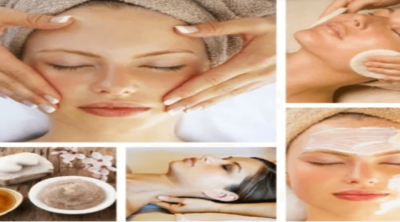
Occurrence of dry skin patches on the face is not only a cosmetic concern, but a health concern as well. This article tells you about the possible causes behind the condition, and the treatment options available for it.
Dry skin patches are a bane, especially when they show up on the face. Characterized by flaking, peeling, and rough skin, these patches can rob your skin of the luster, and lead to formation of early wrinkles and lines. Although the change in the texture and appearance of the skin can be a cause of cosmetic concern, dry, flaky skin can also make one susceptible to other skin conditions. For instance, one may be tempted to scratch the affected skin due to intense itching. This can aggravate the condition and may increase the risk of secondary bacterial infections.
One of the common questions among people is that why do these patches appear on the face despite moisturizing and caring for the skin. Although you might religiously follow a good skin care regime, the itchy, dry patches on the skin, also known as xerosis, can still flare up. Factors like dehydration, overexposure to the sun, chemicals, and side effects of particular medications, may rob the skin moisture, leaving it dry and flaky. In case of women, hormonal changes during pregnancy could be the culprit. Certain medical conditions could also give rise to the development of flaky patches on the face.
Causes of Dry Patches on the Face
Normal healthy skin is filled with moisture along with natural lipids or fatty substances that keep the face supple and beautiful. When the skin loses its moisture due to the environmental factors or certain health concerns, it can signal the advent of extremely embarrassing and visible dry skin patches.
Cosmetic Woes
Cosmetic Products
Cosmetic products are overloaded with chemicals that can strip away the natural oil from the skin, leaving it extremely dry and irritated. Most of the facial cleansers contain a surfactant known sodium laureth sulfate, a foaming agent which is one of the main causes of dry skin. Scented moisturizers, scented cosmetic products and toners can prove to be extremely bad for the skin, and should ideally be replaced with thick moisturizers that lock the moisture in the skin.
Quick Fix Remedies
- Switch to a non-foaming gentle cleanser.
- Look for a non-comedogenic, hypoallergenic moisturizer to keep away the skin dryness.
- To boost the skin’s hydration, use milk to clean the face. Dip a soft washcloth in a cup of milk and use it to clean the skin. The lactic acid in the milk gently cleans the skin while the fat hydrates it.
- You can also use olive oil or sweet almond oil to moisturize and hydrate your skin. Warm the oil a little bit and gently massage a small quantity on the face. This works very well in restricting dry patches on skin.
- Use a natural dry skin mask to restore moisture to the skin. Aloe vera masks are great for dry skin. Break open an aloe vera leaf and take some of the clear jelly-like substance inside. Rub it on the face and leave it on for some time, before washing it off with cold water.
Environmental Hazards
Climatic Changes
The skin tends to dry out during the winter months as the low levels of humidity causes a drop in the temperature. Then the skin is often aggravated by the usage of heating systems like thermostats, which further lowers the humidity levels indoor. It’s not just the winters but staying in cold, air-conditioned rooms for the greater part of the day worsens the problem and leads to white flaky patches on the face. Prolonged exposure to the sun also damages the skin and rubs off its natural oils.
Quick Fix Remedies
- To keep the air inside the room moist, install a humidifier in the room.
- Protect the face and other body parts when stepping outdoors with protective clothing.
- Always apply a SPF 30 sunscreen before stepping out. The UV rays of the sun can break down the collagen and elastin fibers in the dermis, leading to fine lines and dry skin patches.
Medical Conditions
Red, scaly and dry skin patches on the face, that appear suddenly and remain persistent indicates some sort of skin disorder or medical condition.
Atopic Dermatitis
This chronic, long-term skin disorder is identified by the development of rashes, which are extremely itchy and scaly. Besides the facial skin, the elbows, wrists, knees and ankles could also be affected by this inflammatory condition. The condition often worsens when the skin is exposed to dry and cold air, or when it comes in contact with certain irritants. Sudden temperature changes, scented soaps and perfumes, pollen dust and other allergies, or too much stress can trigger atopic dermatitis.
Psoriasis
Psoriasis is a chronic, non-contagious, autoimmune disease, resulting in red scaly patches on the skin. The disease affects areas of inflammation and excessive skin production. As the skin rapidly accumulates at these infected sites, it takes on a silvery-white appearance. Factors such as stress, withdrawal of systemic corticosteroids, excessive alcohol consumption and smoking, can trigger this condition and result in dry skin patches on the face and body.
Diabetes
The sudden fluctuations in blood glucose levels can lead to dehydration and drying up of the skin.
Hypothyroidism
A condition that is marked by the reduction in the production of thyroid hormones, hypothyroidism can lead to the slowing down of the activity of the oil and sweat glands. This in turn causes rough and dark patches on the skin.
Other medical conditions that lead to dry patches on the face are skin allergies, ichthyosis, kidney diseases, myeloma, and cancer. Certain medications like diuretics for high blood pressure and prescription retinoids to treat acne can lead to skin dryness.
Quick Fix Remedies
- For underlying medical condition that causes dry patchy skin, treating it with appropriate drugs and giving medical treatment helps.
- Topical application of steroids is usually prescribed for treating inflammatory skin conditions. In case of skin allergies, antihistamines like diphenhydramine, chlor-trimeton, or loratadine (Claritin, Claritin RediTabs, Alavert) may be recommended.
- Using anti-itch creams containing camphor, menthol, pramoxine and diphenhydramine (Benadryl) may relieve itchy skin.
Aging
Aging Process
The term ‘transepidermal water loss’ refers to the amount of water or natural oils that are lost through the epidermis (outermost layer of the skin) through the process of evaporation or diffusion. If the water loss is more than normal, the skin may turn dry and dull. The natural oils that keep the skin lubricated prevent an excessive loss of water through the epidermis. However, as we age, the production of the natural oils by the sebaceous glands decreases. As a result, the body is unable to hold water. This makes the elderly susceptible to dryness of the skin. Besides dry skin, wrinkles, under-eye bags, dark circles and sagging skin, are the skin problems that appear in old age due to the decrease in production of proteins like collagen and elastin.
Quick Fix Remedies
- Using a rich anti-aging face cream with retinol (a natural form of Vitamin A) and alpha hydroxy acids can help in dealing with dry skin due to aging. The alpha hydroxy acids strip away the dead skin cells from the face, leading to smoother and brighter skin, while retinol increases the elasticity of the skin.
- Natural products like glycerin and Vitamin E oil can help in restoring the glow of the face. Vitamin E will enrich the skin with moisture from within, and help in getting rid of rough patches or the dry spots. You can also consult a dermatologist to know more about the products that might work for you.
Dehydration
Inadequate Water Intake
While it is necessary to have food that is rich in vitamins and minerals, it is also essential to drink adequate amounts of water everyday. Insufficient water intake can dehydrate one’s skin and result in dry flaky skin on the face. Excessive consumption of caffeinated products such as coffee or tea can also result in dehydration, thereby causing dry skin patches.
Quick Fix Remedies
- Drink lots and lots of water.
- Avoid tea, coffee, sodas and other caffeinated drinks
Dry skin patches that are red, itchy and flaking, can cause a lot of embarrassment. Try to find out the cause behind this skin problem and take appropriate steps to get rid of it. Despite the best care, if this dry skin condition persists, a visit to a dermatologist is advisable to combat the problem.
Disclaimer: This article is for informative purposes only, and should not be used as a replacement for expert medical advice.




